The national consultative seminar, “Skill India – The Way Forward in Higher Education”, collaboratively organized by Maharashtra State Skills Development Society (MSSDS), Government of Maharashtra, Tata Institute of Social Sciences – School of Vocational Education (TISS-SVE) and Observer Research Foundation (ORF) had many firsts to its credit.
The presence of Ministry of Human Resource Development (MHRD) and the Ministry of Skill Development in Entrepreneurship (MSDE) on the same platform signified renewed momentum to boost Skill India mission at the higher education level by integrating skills and vocational training with academic learning. The enthusiasm and curiosity among the participants was palpable since the much-awaited decision to introduce skill-based courses in higher education would improve the employability quotient of India’s youth and show them various flexible paths to learn, earn and grow.
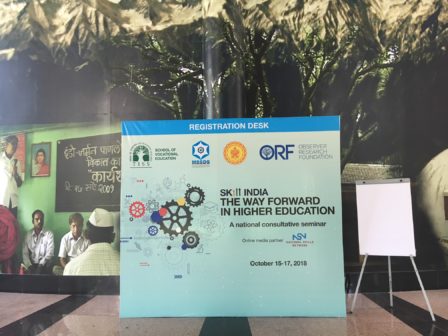 The 3-day seminar opened up dialogues and deliberations in many core areas of how Education and Economy get connected through skills, workplace, qualifications, mobility, parity, equivalence, industry requirements, financial support, advocacy and outreach. It also tried to identify the weak areas and drawbacks at the policy level by engaging in discussion on what has worked well in some initiatives, how it could be replicated and what could be learnt from efforts that did not yield the desired results. A case in point is the B.Voc Program offered by 3 organizations; while it has been successfully implemented at TISS-SVE and Fergusson College, Pune, closely working with the industry partners through a demand-driven curriculum, it was faced with many challenges at St. Xavier’s College, Mumbai.
The 3-day seminar opened up dialogues and deliberations in many core areas of how Education and Economy get connected through skills, workplace, qualifications, mobility, parity, equivalence, industry requirements, financial support, advocacy and outreach. It also tried to identify the weak areas and drawbacks at the policy level by engaging in discussion on what has worked well in some initiatives, how it could be replicated and what could be learnt from efforts that did not yield the desired results. A case in point is the B.Voc Program offered by 3 organizations; while it has been successfully implemented at TISS-SVE and Fergusson College, Pune, closely working with the industry partners through a demand-driven curriculum, it was faced with many challenges at St. Xavier’s College, Mumbai.
An emerging model of blending vocational subjects with conventional courses at Bachelors level, through Skills University was thoroughly discussed with examples from TeamLease Skills University, Vishwakarma Skills University and Centurion University of Technology and Management (CUTM) representing different parts of India. These universities are in the process of establishing unique models of offering market-driven short and long-term courses in compliance with the National Skills Qualification Framework (NSQF).
In addition, the seminar also put forth some concerns and observations from keynotes that can be described as the manifestations of teething troubles of a new system. This refers to the skill-focused interventions trying complement the existing mainstream education that has not been able to address issues pertaining to employability, job creation and leveraging India’s demographic dividend. Many aspects were brought into the fore for creating awareness and exploring solutions – this includes the role of Sector Skill Councils, the need for re-looking at the Qualification Packs (QPs) and National Occupational Standards (NOS), short term training programs like PMKVY, Recognitions of Prior Learning (RPL), incentivized apprenticeships, fee-based model of vocational training, the role of private training partners, future jobs and the impact of latest technologies and modalities for seeking continued industry participation.
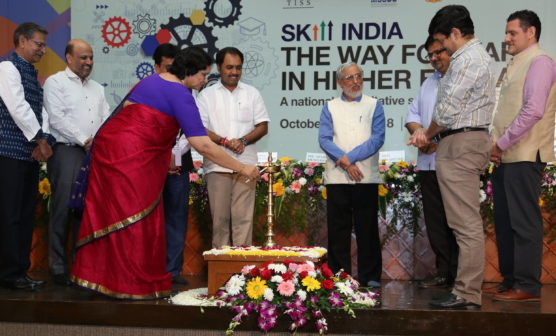 Inaugural session: The inaugural session presented views from the government (both state and central) along with the context and timing of the seminar. The core message from the speakers was the need for skill-based courses in higher education that can lead to better employability and incomes and promote entrepreneurship and job creation. The government of Maharashtra announced the plan to launch 6 skill universities, starting with specialized universities in Forestry and Cyber Skills. A key differentiating factor of these universities would be their agility and lightness when it comes to administrative and operational structure. There would be parity of the degrees offered through these universities, without compromising on academic rigour and practical training. Another highlight was the announcement from MHRD about professional degree courses in Arts, Commerce and Science streams.
Inaugural session: The inaugural session presented views from the government (both state and central) along with the context and timing of the seminar. The core message from the speakers was the need for skill-based courses in higher education that can lead to better employability and incomes and promote entrepreneurship and job creation. The government of Maharashtra announced the plan to launch 6 skill universities, starting with specialized universities in Forestry and Cyber Skills. A key differentiating factor of these universities would be their agility and lightness when it comes to administrative and operational structure. There would be parity of the degrees offered through these universities, without compromising on academic rigour and practical training. Another highlight was the announcement from MHRD about professional degree courses in Arts, Commerce and Science streams.
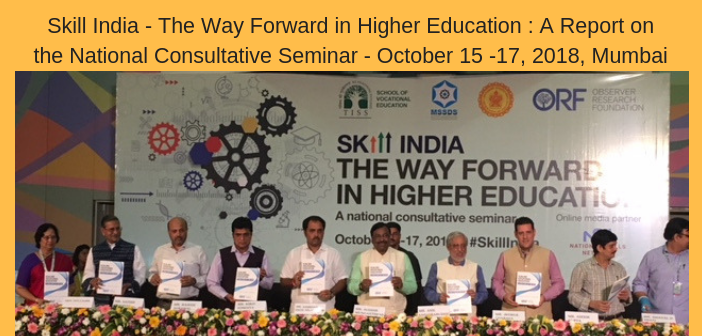
Inaugural session: Inaugural session and dignitaries on the dais: Video message from Prakash Javadekar, Hon. Minister, Human Resource Development, Government of India; Sudhir Mungantiwar, Hon. Finance Minister, Government of Maharashtra, Sambhaji Patil Nilangekar, Minister, Skill Development and Entrepreneurship Government of Maharashtra, Anil Sahasrabudhe, Chairman, All India Council for Technical Education (AICTE); Kirit Somaiya, Member of Parliament and Chairperson, Standing Committee on Labour; Rajesh Agrawal, Joint Secretary & CVO, Ministry of Skill Development & Entrepreneurship; Jorge Coarasa Chief Economist, World Bank India; Prof. Neela Dabir, Dean, TISS-SVE; Aseem Gupta, Secretary, Department of Skill Development and Entrepreneurship, Government of Maharashtra; Satish Pradhan, Member, Governing Board, TISS; Dhaval D Desai, Vice President, ORF Mumbai
While some of these new ideas are yet to be vetted and implemented, the success story of B.Voc courses from TISS-SVE emphasized facts like being demand-driven with moderate course fee and ensured industry participation (hub-spoke mechanism with vertical anchors) as the main features of a model that can be further refined and replicated. The initial fund from the government to set up these courses should eventually lead to an effective, scalable and self-sustained model. The push of vocational courses at higher education level is also aimed at addressing larger socioeconomic issues such as showing an aspirational path towards getting a degree, building capacity by filling in the skill-gaps and imbibing quality in outcomes and transparency in process and transactions.
Day 2: The second day began with thought-provoking keynotes that highlighted divergent issues with present skilling framework and how digital technologies can impact the social sector in a positive way through timely interventions in appropriate skilling and education. Prof. Santosh Mehrotra, Jawaharlal Nehru University (JNU) delivered his keynote through Skype and raised many critical issues that need our immediate attention in the evolving skills ecosystem in India.
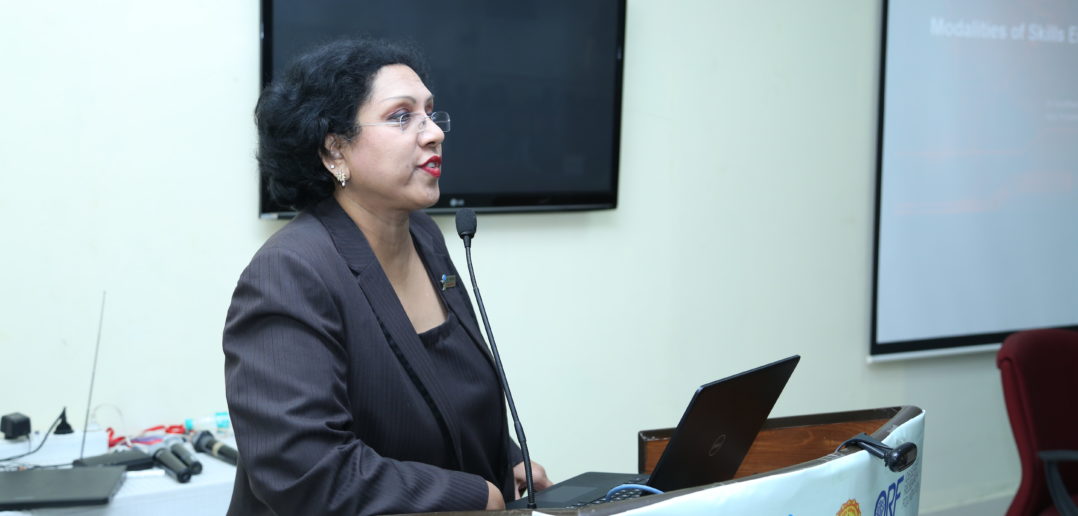 Keynote by Sandhya Chintala, Vice President, NASSCOM
Keynote by Sandhya Chintala, Vice President, NASSCOM
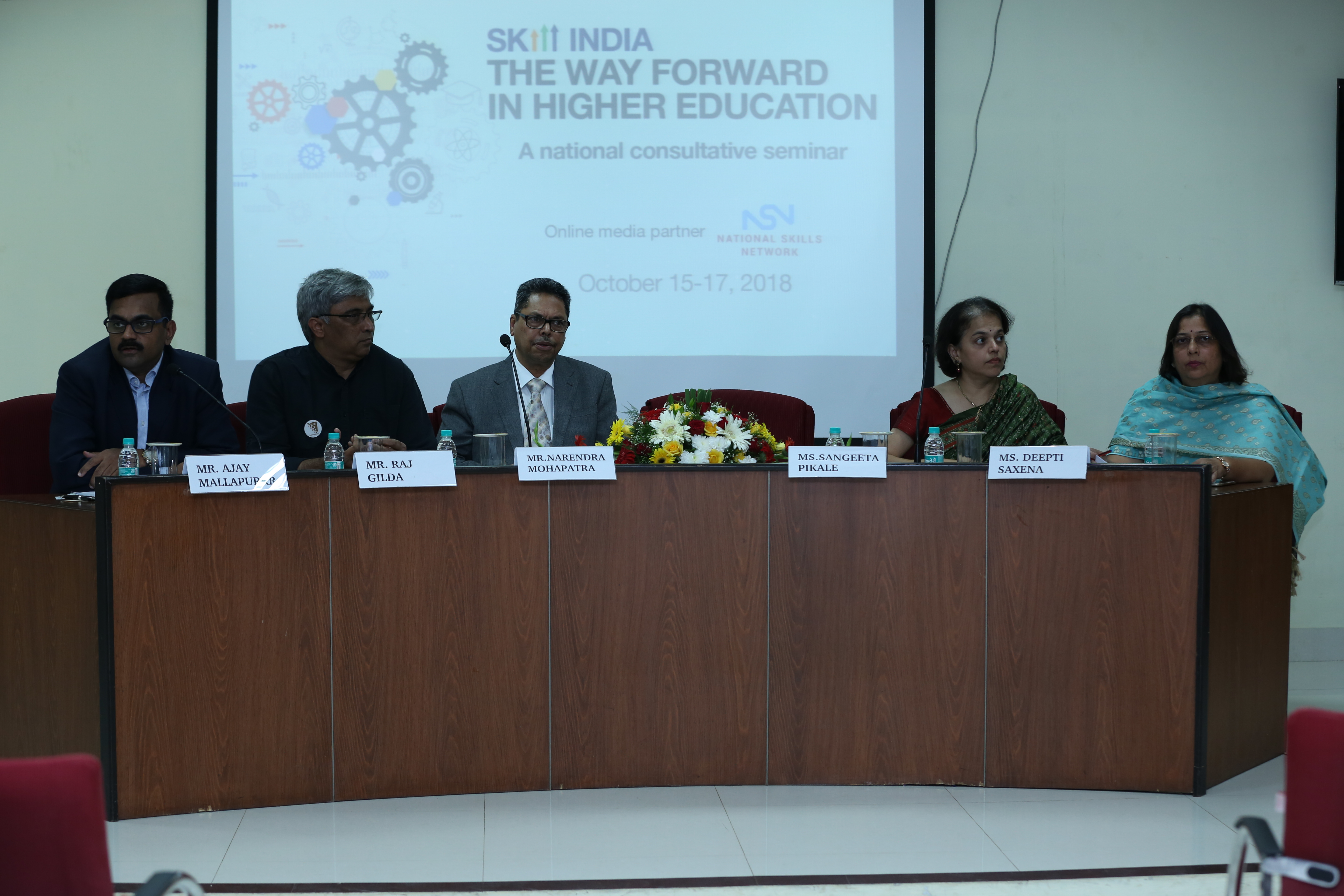 Panel 1: Narendra Mahopatra, CEO, Electronics Sector Skill Council; Sangeeta Pikale,Representative, Health Sector Skill Council; Raj Gilda, Lend a Hand Foundation, Pune; Deepti Saxena, Head – Standards, National Skill Development Corporation; Ajay Mallapurkar, Principal Consulatant – Tata Institute of Social Sciences – SVE (Moderator)
Panel 1: Narendra Mahopatra, CEO, Electronics Sector Skill Council; Sangeeta Pikale,Representative, Health Sector Skill Council; Raj Gilda, Lend a Hand Foundation, Pune; Deepti Saxena, Head – Standards, National Skill Development Corporation; Ajay Mallapurkar, Principal Consulatant – Tata Institute of Social Sciences – SVE (Moderator)
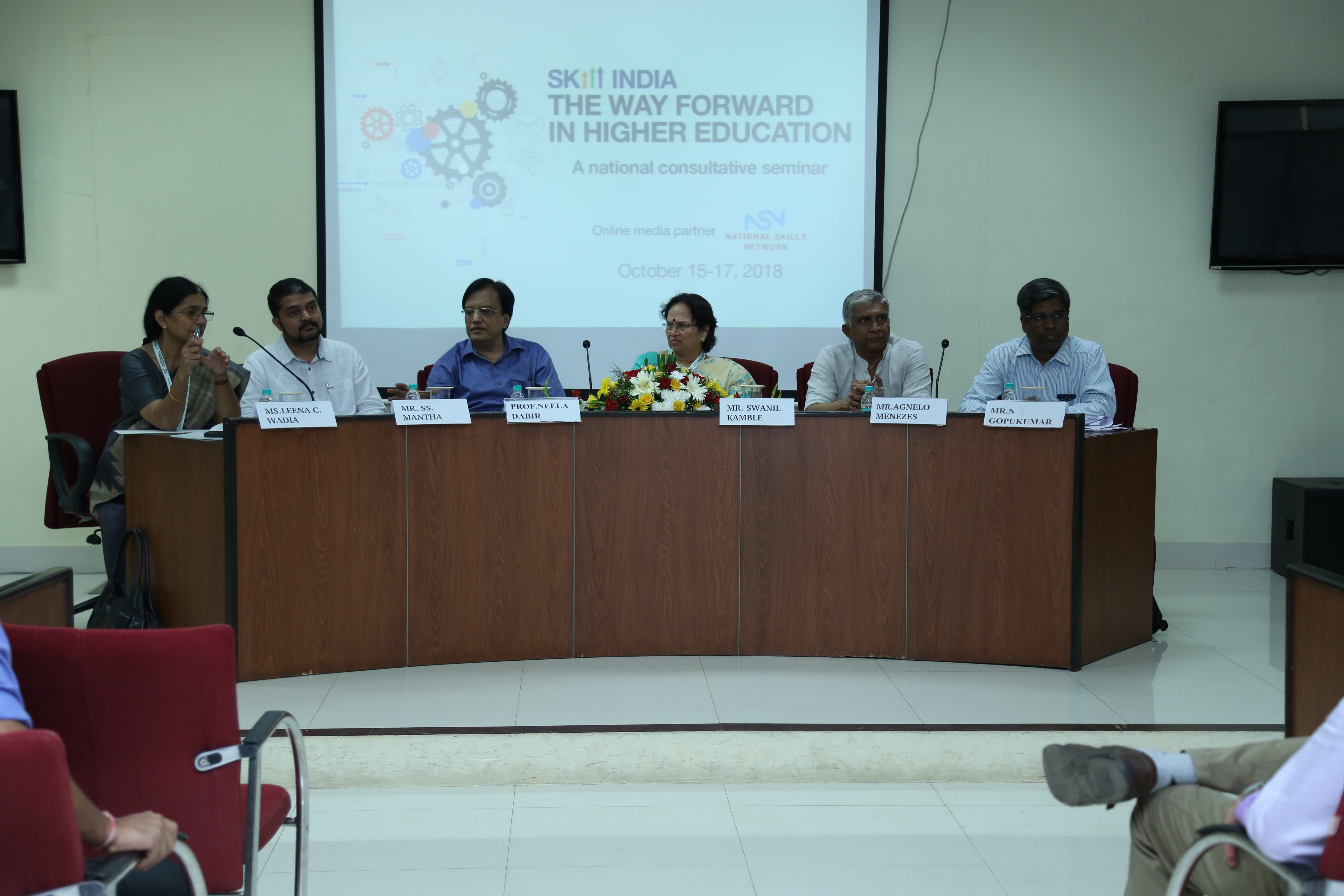 Panel 2: SS Mantha, Former Chairman, AICTE; Agnelo Menezes, Head, Department of Public Policy and former Principal, St. Xavier’s College, Mumbai; Swapnil Kamble, Coordinator, BVoc, Fergusson College, Pune; Prof Neela Dabir, Dean, Tata Institute of Social Sciences – School of Vocational Education (TISS-SVE); Dr Leena Chandran Wadia, Senior Fellow, Observer Research Foundation (Moderator)
Panel 2: SS Mantha, Former Chairman, AICTE; Agnelo Menezes, Head, Department of Public Policy and former Principal, St. Xavier’s College, Mumbai; Swapnil Kamble, Coordinator, BVoc, Fergusson College, Pune; Prof Neela Dabir, Dean, Tata Institute of Social Sciences – School of Vocational Education (TISS-SVE); Dr Leena Chandran Wadia, Senior Fellow, Observer Research Foundation (Moderator)
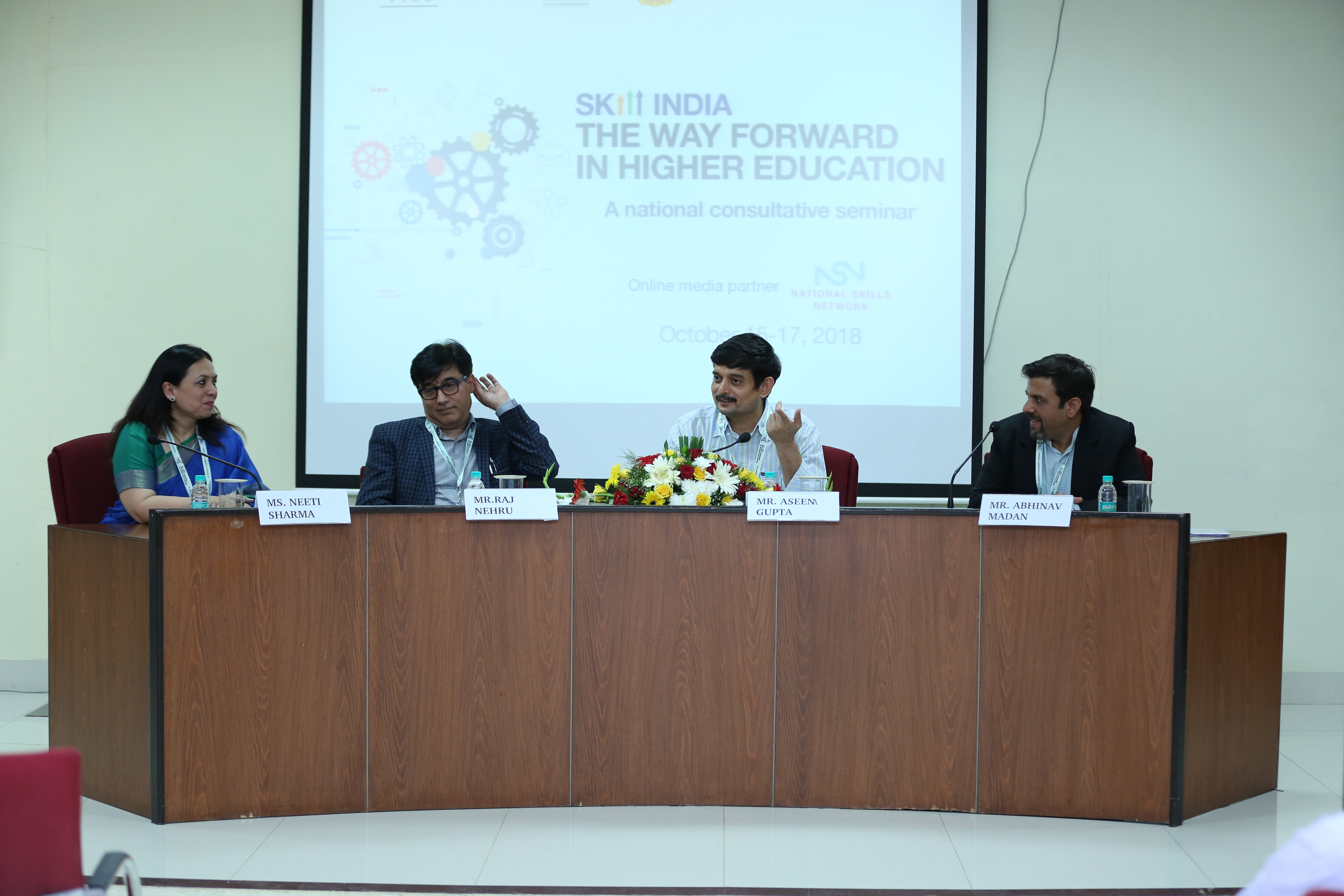 Panel 3: Neeti Sharma, Senior VP, TeamLease Services (TeamLease Skills University, Vadodara; Raj Nehru, Vice Chancellor, Vishwkarma Haryana Skill University; Abhinav Madan, MD – Skill Development Vertical, Centurion University, Bhubaneswar, Aseem Gupta, Secretary, Department of Skill Development and Entrepreneurship, GoM (Moderator)
Panel 3: Neeti Sharma, Senior VP, TeamLease Services (TeamLease Skills University, Vadodara; Raj Nehru, Vice Chancellor, Vishwkarma Haryana Skill University; Abhinav Madan, MD – Skill Development Vertical, Centurion University, Bhubaneswar, Aseem Gupta, Secretary, Department of Skill Development and Entrepreneurship, GoM (Moderator)
Following is the list of points presented and discussed by the speakers:
- The need to re-look at short-term training programs like PMKVY and ensure that it leads to quality, productivity and efficiency of workers along with a critical review of the contribution of Sector Skill Councils in terms of industry participation in skilling programs
- Since IT-ITeS have become a horizontal sector with the emergence of digital enterprises and technology-enablement, there is a need to digitally empower people and bridge the gaps between digital haves and have nots and the informal and formal sector
- With regard to addressing the shortcomings of Qualification Packs (QPs) and National Occupational Standards (NOS) in higher education courses, there is a move to create vertical and horizontal progression for B.Voc students with more options for OJT through multiple skilling within the scope of NSQF
- The need to develop specialized QPs for unorganized sector and higher education segment instead of force fitting them into the initial framework which was developed for organized and siloed industry
- In the Healthcare sector there is need for multiskilled workforce who can multitask and handle the unique requirements of the profession; OJT in the SME units helps them learn multiple skills
- In the context of upcoming skill universities, there would some overlap in the nature of programs from the conventional academics and vocational space and such a parallel system is needed till both systems converge and integrate into a holistic system
- Skill university builds pathways for career progression after short term training and it need not have all the features of a traditional university like a large campus, however what matters most is industry alignment, training infrastructure to ensure work-integrated learning
- At present, the social stigma attached to skilling could be a huge deterrent for students to opt for vocational courses and affecting its adoption; this may eventually fade away over the years with better salaries and recognition of skills
- The social angle of skills, along with parental aspirations will continue to hinder most initiatives, hence advocacy in terms of clarity of professional progression, parity and equality of degrees could re-position skills focus in higher education
Day 3: The third day started off on a reflective note as the keynotes focused on the overview of the policy implementation and evolution of the skilling ecosystem along with the scope for convergence of Higher Education and Skills and other economic and social aspects of training system.
Keynote by Dilip Chenoy, Secretary General, FICCI and former MD and CEO, NSDC; Jayant Krishna, Former Executive Director & Chief Operating Officer, NSDC
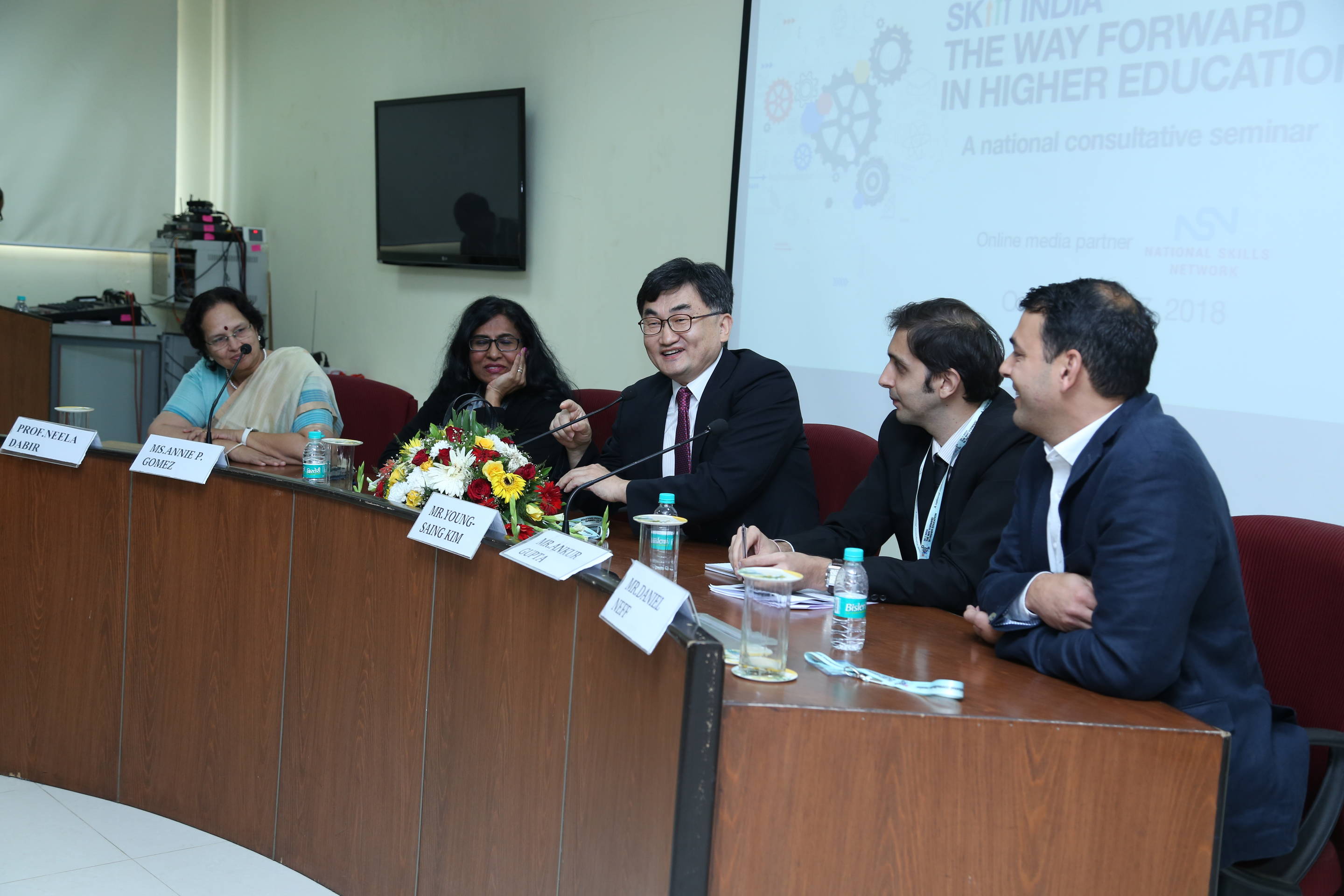 Panel 1: Dr. Daniel Neff, India Charge at BIBB – German Office for International Cooperation in Vocational Education and Training; Dr. Young-Saing Kim Senior Fellow, KRIVET, South Korea; Annie Perumpoykail Gomez & Ankur Gupta School of Business, Temasek Polytechnic, Singapore
Panel 1: Dr. Daniel Neff, India Charge at BIBB – German Office for International Cooperation in Vocational Education and Training; Dr. Young-Saing Kim Senior Fellow, KRIVET, South Korea; Annie Perumpoykail Gomez & Ankur Gupta School of Business, Temasek Polytechnic, Singapore
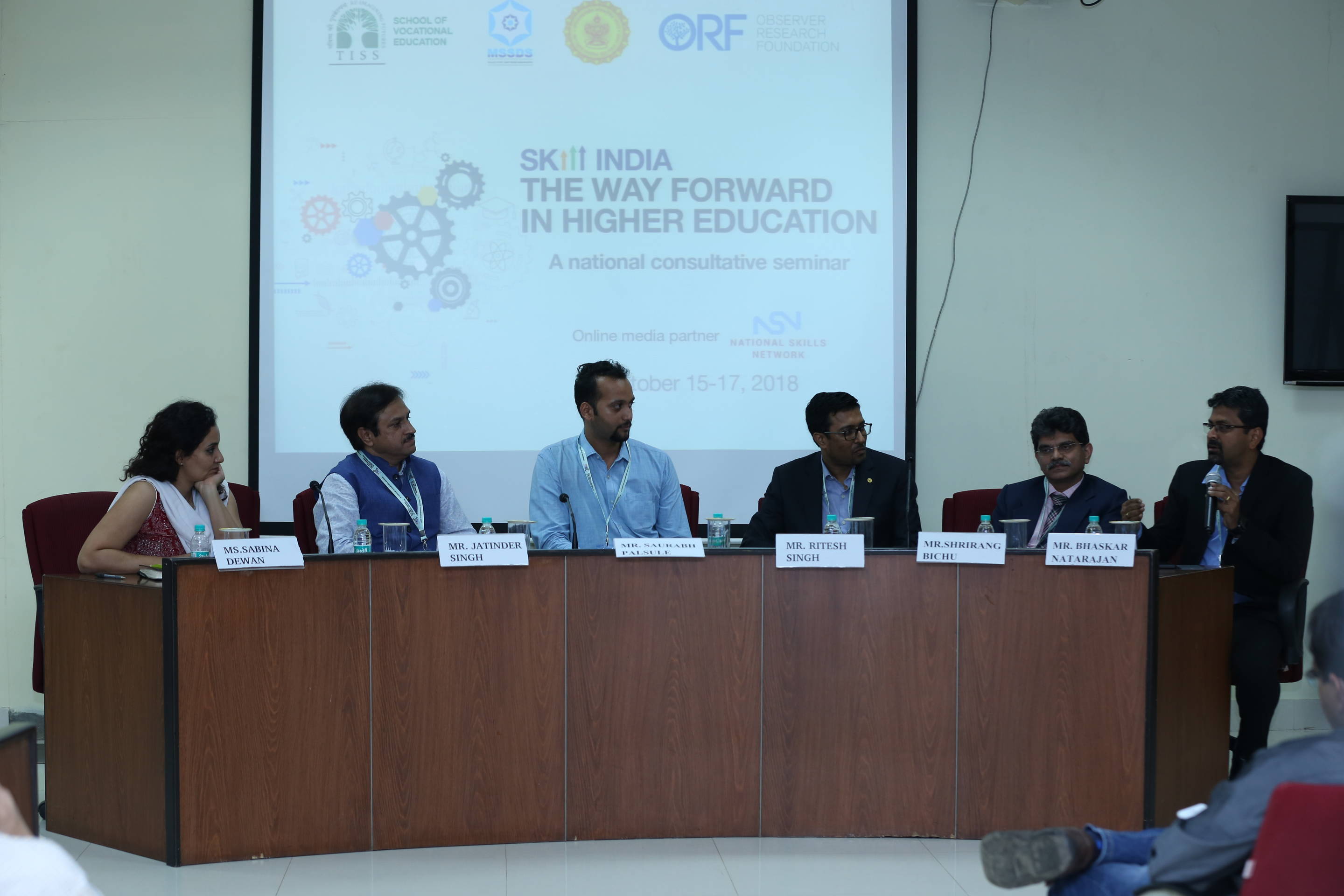 Panel 2: Sabina Dewan, co-founder, JustJobsNetwork; Dayal Kangne, Business Head, CII-Model Career Centre, Mumbai; Jatinder Singh, Director – Skill Development & Entrepreneurship, PHD Chamber of Commerce; Ritesh Singh, VP, Organisation Effectiveness & Development, Taj Hotels Resorts and Palaces; Dr. Shrirang Bichu, Trustee, Apex Kidney Foundation, Bhaskar Natarajan, Head, Programme Execution, Tata STRIVE (Moderator)
Panel 2: Sabina Dewan, co-founder, JustJobsNetwork; Dayal Kangne, Business Head, CII-Model Career Centre, Mumbai; Jatinder Singh, Director – Skill Development & Entrepreneurship, PHD Chamber of Commerce; Ritesh Singh, VP, Organisation Effectiveness & Development, Taj Hotels Resorts and Palaces; Dr. Shrirang Bichu, Trustee, Apex Kidney Foundation, Bhaskar Natarajan, Head, Programme Execution, Tata STRIVE (Moderator)
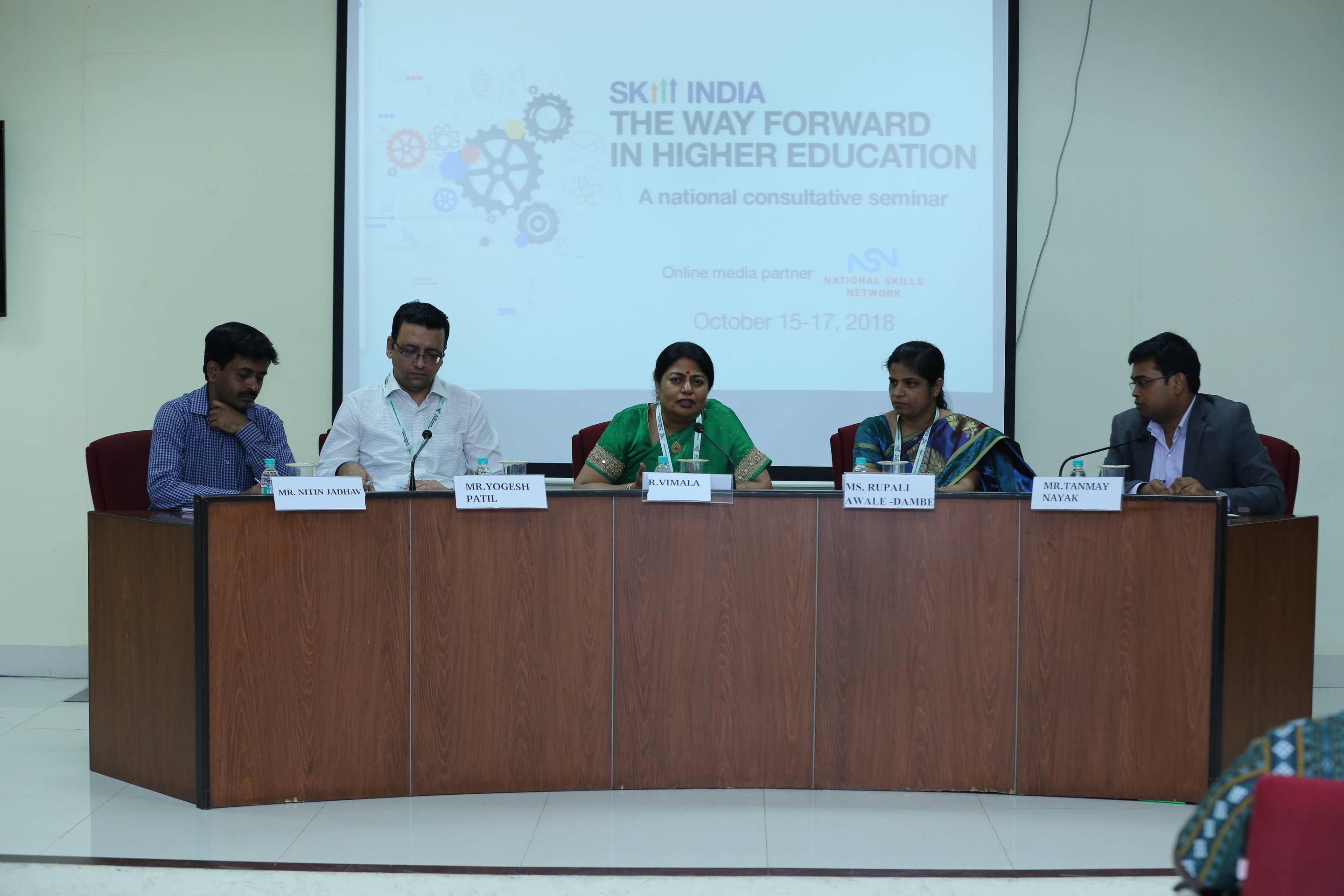 Panel 3: E Ravendiran, Former CEO, Maharashtra State Skill Development Society; Tanmay Nayak, Program Director, National University Student Skill Development (NUSSD) Programme; R Vimala, CEO, Maharashtra State Rural Livelihood Mission; Yogesh Patil, Member Secretary, Maharashtra State Council for Vocational Training; Kailash Kanse, DG, Dr. Babasaheb Ambedkar Research and Training Institute.
Panel 3: E Ravendiran, Former CEO, Maharashtra State Skill Development Society; Tanmay Nayak, Program Director, National University Student Skill Development (NUSSD) Programme; R Vimala, CEO, Maharashtra State Rural Livelihood Mission; Yogesh Patil, Member Secretary, Maharashtra State Council for Vocational Training; Kailash Kanse, DG, Dr. Babasaheb Ambedkar Research and Training Institute.
Following is the list of points presented and discussed by the speakers:
- The skill development ecosystem should be viewed from a holistic perspective for accommodating the dynamic needs of future jobs, by connecting higher education to Industry 4.0 and Society 5.0 to solve the peculiar situation of “people without jobs and jobs without people” in India
- NSQF will integrate and bind the conventional education and vocational streams through outcome based learning, new pedagogic practices and technology enablement
- There is need to revive fee-based skill training to mitigate the risk of government-funded free training programs and the scope for misuse of funds, low quality delivery by private training partners, resultant malpractices when the schemes get operationalized
- India can look into various models of TVET from countries like German, South Korea and Singapore that represent different stages of evolution in the vocational paradigm. Since skill-based learning is highly context and culture bound, it needs to address local problems and issues by adapting internationals best practices
- New ways of industry engagement for enhanced employability through demand-driven curricular models by moving away from top-down approaches should be taken up as a strategic approach
- A review of current skilling programs to evaluate their effectiveness in terms of providing employment, solving issues related to labour market mismatch and sustained employer-engagement
- Replicable successful models of skill training in Hospitality industry by taking a cue from the “Golden Threshold” program from Taj Hotels and how the OJT is tied up with the art of delighting customers through culturally sensitive learning
- Training in MSME and PwD segment with goals of affirmative action and inclusivity; MSMEs and startsups should have a say in skilling programs since they need their workforce to be multi-skilled and insist on productivity from day one
- A review of short-term employability-linked courses offered through MSSDS, MSRLM, MSCVT and BARTI to enhance scope for apprenticeship through successful multiple stakeholder engagement
“Skill India mission is not longer restricted to entry level skills and now it encompasses the higher order skills through new initiatives in the higher education segment.” This statement could aptly summarise the recently held seminar “Skill India – The Way Forward in Higher Education” with positive many indicators towards new models of industry-academia collaboration and award of professional degrees and diplomas through skill universities. This calls for continuous engagement of members from the academia and industry to build new bridges between the ‘knowledge’ and its ‘practical application’ in solving problems, thus inspiring youth to become job creators. Many new avenues are needed to understand issues in implementation, replication of models and scaling of programs that could form a part of the agenda for skill universities.
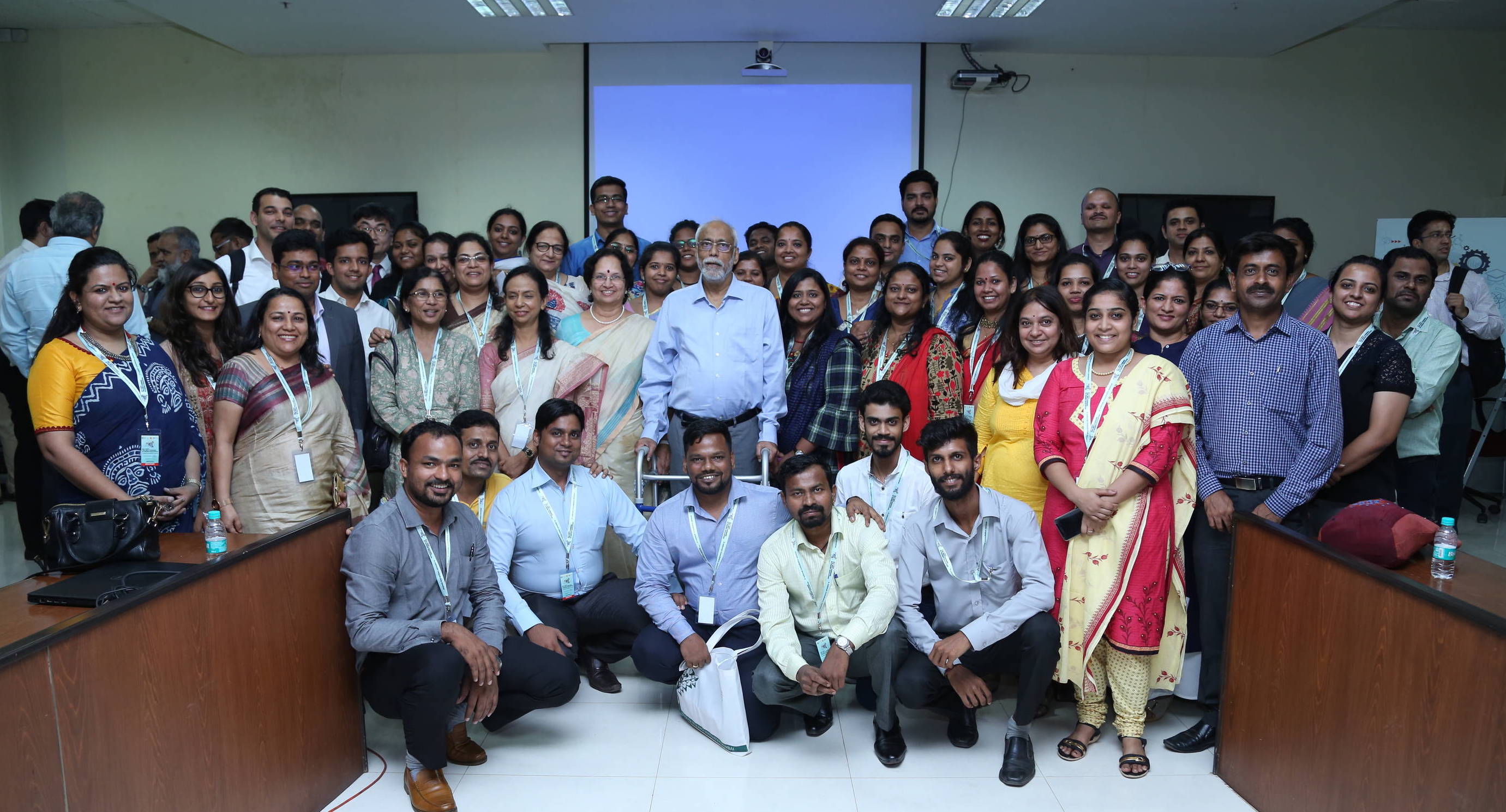




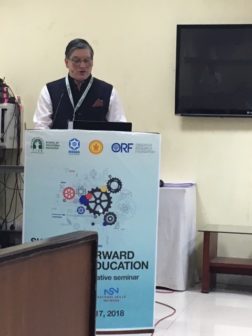
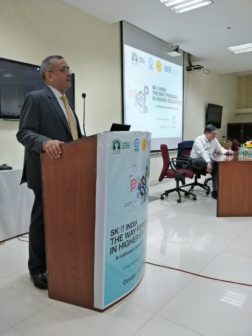









Students should learn to work toward a team goal, support teammates, and collaborate on the development of a group plan.
very nice i am very glad to read this by heart.
we are progressing many courses of allied health from MSSDS VTP courses.
and we completed one batch so please mail me regarding examination information.
Thankin you
“Skilling India” is one robust way towards alleviating protracted unemployment in India. Our academic courses are more theory oriented & off-the market orientation. Hence skill development through vocational training and skill oriented courses would pave the way for both employer & employee